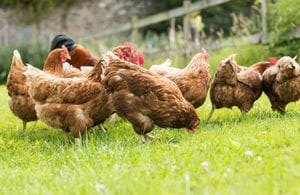Avian Influenza (bird flu) Monday, January 9, 2017

Avian Influenza, also known as bird flu, is a disease that affects all types of poultry including chickens, ducks and geese. A severe strain of the disease, H5N8, has recently been found in wild and captive birds in the UK.
An Avian Influenza Prevention Zone that has been in place since 6 December will be extended until 28 February to help protect poultry and captive birds from avian flu, the Chief Veterinary Officer has announced.
The zone requires keepers of poultry and other captive birds to continue to keep their birds indoors, or take appropriate practical steps to keep them separate from wild birds.
It covers England and similar declarations have been made in Scotland and Wales. There is also a GB-wide ban on poultry shows and gatherings.
If you keep poultry, you must also practice good biosecurity to minimise the risk of infection spreading via items such as feed, clothing or equipment.
Public Health England advises that the risk to public health remains very low and the Food Standards Agency is clear that bird flu does not pose a food safety risk for UK consumers.
The Department for Environment Food & Rural Affairs has produced a guide which can be accessed here and gives usful information on Protecting your poultry and reducing the risk of infection.
Further information is also available on the .Gov website
